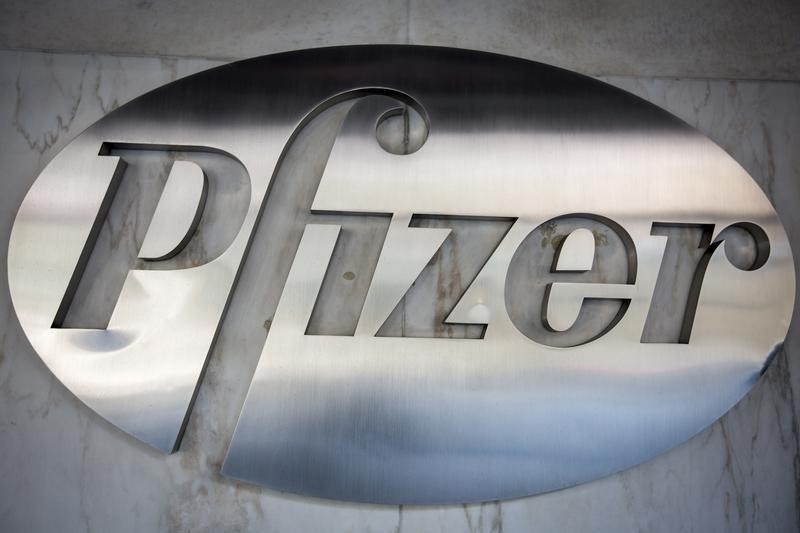By Greg Roumeliotis and Pamela Barbaglia
(Reuters) - Pfizer Inc (N:PFE) is negotiating a 2-3 percent break-up fee with Allergan Plc (N:AGN) that would be in line with most deals, people familiar with the matter said, a sign of confidence that such a merger could overcome regulatory hurdles. The break-up fee, to be paid by Pfizer if it were to walk away from Allergan, would come out to $3 billion (£1.96 billion) to $4.5 billion based on a $150 billion deal value. That would make it one of the highest ever break-up fees in dollar terms. However, break-up fees are set in relation to the target company's size. One of the people familiar said a 2-3 percent fee would be at the lower end of similar transactions. One of the main regulatory concerns about a Pfizer-Allergan merger pertains to the domicile of the combined company. U.S.-based Pfizer could move its headquarters to Ireland, where Allergan is based, to take advantage of lower tax rates. So-called tax inversions have driven other merger deals, but the U.S. Treasury is planning to clamp down on them.
When the Treasury last tightened the rules on inversions in 2014, Chicago-based drugmaker AbbVie Inc (N:ABBV) paid a break-up fee of close to $1.7 billion to peer Shire Plc (L:SHP) to abandon its $55 billion merger agreement that would have seen it re-domicile in Ireland.
The largest beak-up fee ever agreed was $10 billion, and involved Verizon Communications Inc's (N:VZ) $130 billion deal in 2013 to acquire Vodafone Group Plc's (L:VOD) 45 percent stake in Verizon Wireless.
The biggest break-up fee that has been paid was for $4 billion, when AT&T Inc's (N:T) $39 billion deal to acquire T-Mobile US Inc (O:TMUS) was opposed by regulators in 2011.
The sources, who asked not to be identified because the negotiations are confidential, cautioned that the break-up fee and other aspects of Pfizer's deal with Allergan have not been finalised, and that the companies were still waiting for the Treasury to unveil its updated rules on inversions.
Pfizer and Allergan both declined to comment.
Pfizer is negotiating $370 to $380 for each Allergan share, a person familiar with the discussions said on Wednesday. Allergan shares closed at $302.05, down 2.8 percent, illustrating that investors are still worried about the deal's prospects. Pfizer shares ended down 3 percent at $32.29.
"We struggle to see what the Treasury can do to specifically curb a Pfizer-Allergan combination, however, we also acknowledge that the political noise surrounding the re-domicile of Pfizer - one of the largest pharma companies in the U.S. - will likely only increase with the announcement of a merger, and likely constitutes the most material hurdle to consummation of transaction of this nature," Citigroup (N:C) analysts wrote in a note on Wednesday.
As a wave of inversions peaked in September 2014, Treasury took several regulatory actions to reduce the tax benefits of inverting, while also making new deals more difficult. That slowed deal flow but did not stop it entirely.
For months tax experts have speculated about what could come next from Treasury. Possible steps might include tightening the rules on two strategies related to inversions, tax experts said: so-called "earnings stripping" and "skinny down" distributions.
Earnings-stripping rules combat shifting of U.S. profits out of the country to low-tax jurisdictions. Treasury has struggled to write new rules on this under present law, said tax experts.

Rules targeting skinny-down distributions are meant to keep U.S. companies from shrinking their operations ahead of inversions to evade standards for minimum levels of foreign ownership in inverted companies.
